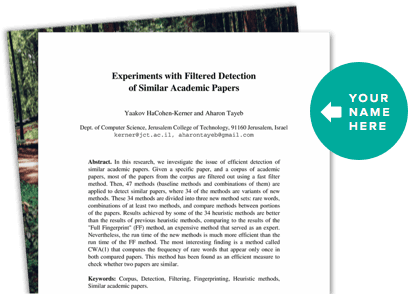About This Project
Our immune system protects us from abnormal (cancer) cells and a key component is the natural killer (NK) cell. However, tumour cells can inhibit the activity of NK cells, rendering them inactive and allowing tumours to grow. We have a strategy to create NK cells that are not inactivated by the tumour. We will use mouse NK cells and mouse melanoma cells as a model to test our hypothesis that NK cells can be engineered to overcome the tumour’s inhibition and continue to kill tumour cells.
Ask the Scientists
Join The DiscussionWhat is the context of this research?
Current treatments for metastatic cancer include chemotherapy (cancer becomes resistant), radiation (unwanted side effects, difficult to eliminate metastases), and surgery (usually not possible with disseminated cancer). Immunotherapies with antibodies usually have limited utility. Novel therapies using T cells and NK cells modified with an antigen-receptor complex (CAR-T and CAR-NK) do not appear to have good activity against metastatic solid tumours. More work is ongoing with respect to CAR-NK and solid tumours. Our novel approach will enable NK cells to overcome inactivation and destroy cancer cells more quickly than they can divide, making metastatic cancer a manageable disease. By maintaining the patient's "super NK" cells in culture, repeated administrations can be given over time to control the cancer.
What is the significance of this project?
The experimental approach is confidential and must protect the intellectual property of these ideas. That said, if we can engineer NK cells to become "superNK cells," that can inhibit and kill cancer cells, then this will have a major impact on future cancer treatments. Our initial experiments will be conducted in cell culture and we will mimic the ways in which cancer cells can inhibit normal NK cells. We will then test the "super NK" cells in those system.
What are the goals of the project?
Tumour cells can inhibit the activity of NK cells. The approach is to overcome this inhibition. We will use NK and melanoma cells from mice as a test system in cell culture. The first part will determine the conditions under which NK cells kill tumour cells in vitro, including their inhibition by cancer cells. We will use molecular cloning and CRISPR techniques to engineer NK cells so that they continue to kill the cencer cells under all conditions. If successful we will test the "superNK" cells can reduce or eliminate lung melanoma colonies in mice in future work.
Budget
The budget will enable the company to rent space in a US incubator laboratory space which is fully equipped with major equipment. The budget will allow us to procure small equipment items, consumables such as pipettes, culture dishes, etc, chemicals and cells. and carry out the laboratory experiments (Phase 1) in cell culture that will enable us to proceed to testing in animal models of cancer. It is critical that the cell culture experiments support our hypothesis that we can overcome the ways in which tumours can inhibit NK cell-mediated killing. Phase 1, if successful, will result in the creation of "superNK" cells for further testing. The budget will also allow for accommodation and travel by the scientist locating to the US facility for an initial period of 4 months. We also have funding to assist with travel and accommodation.
Endorsed by
 Project Timeline
Project Timeline
Set-up of the lab will take two weeks, starting as early as possible in 2025. Set-up includes ordering of supplies, etc, and establishment of growth conditions for the cell lines. We will then establish the first set of standard cell killing experiments by the end of month 1. Creation of "superNK" cells and testing will take approximately 2.5 months. 0.5 month will be allocated for collation and presentation of results.
Mar 19, 2025
Project Launched
Jun 13, 2025
Lab set-up
Jun 30, 2025
Tumour cell killing assays established
Sep 12, 2025
"superNK" cells created and tested
Sep 30, 2025
Collation and interpretation of results
Meet the Team
Michael West PhD
BSc and PhD - Edinburgh University
Post Doctoral Experience - Georgetown University, Washington DC, NCI-NIH and NIADDK-NIH Bethesda Md
Scientist - Allelix Inc - Mississauga - Ontario - Canada
Founder and Chief Scientific Officer - Integrated Protein Technologies, Toronto Ontario Canada
Director of Research - (Chief Scientific Officer) Micrologix Biotech (Migenix) Vancouver BC, Canada
Vice-President, Preclinical Research, GlycoDesign Inc., Toronto, ON, Canada
Professor - Red River College, Winnipeg, Manitoba, Canada
Industrial Technology Advisor, NRC-Industrial Research Assistance Program (IRAP) Toronto ON, Canada
Advisor, ProteocyteAI and KeyIntel Medical, Toronto ON, Canada
Additional Information
Please note that the budget for travel and accommodation is $5000 based on me and my partner contributing $10000 to this.
Project Backers
- 1Backers
- 1%Funded
- $250Total Donations
- $250.00Average Donation

